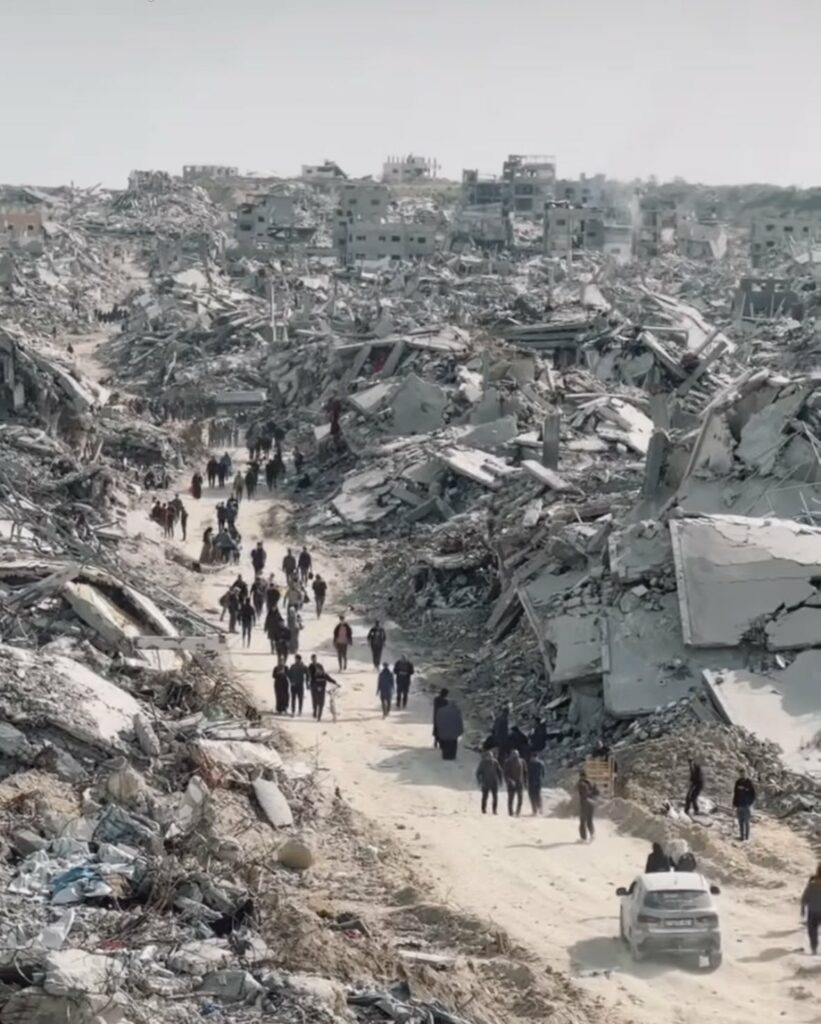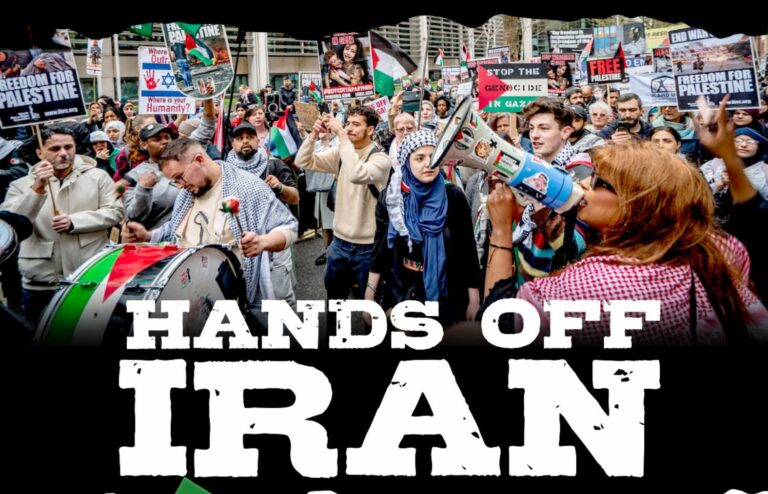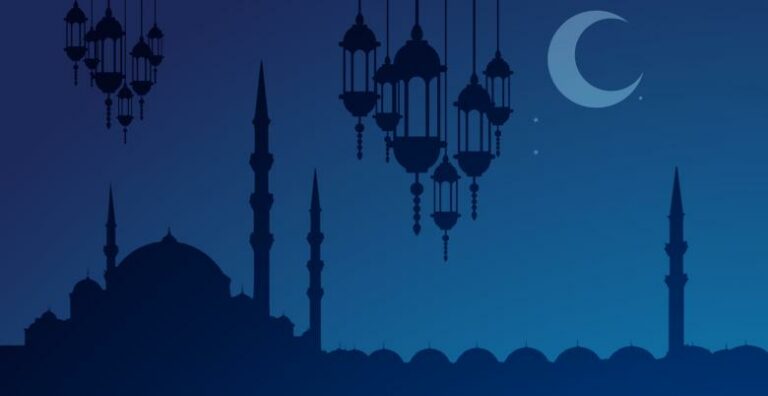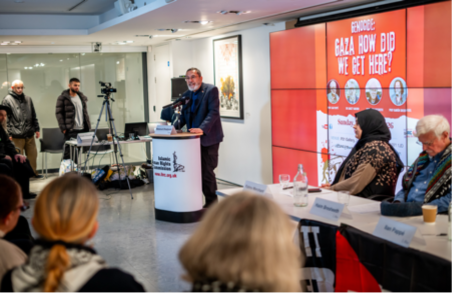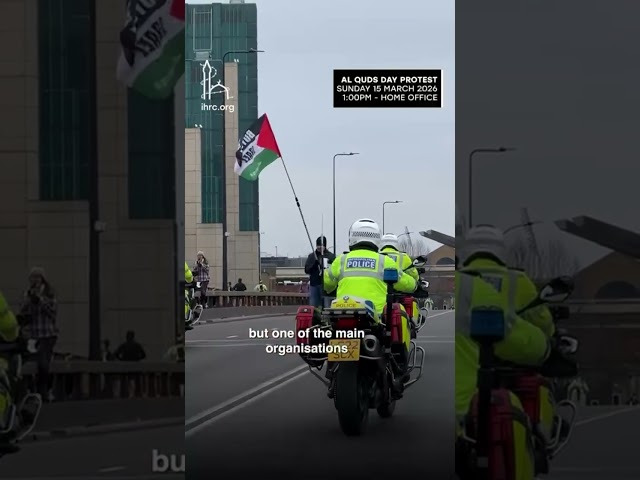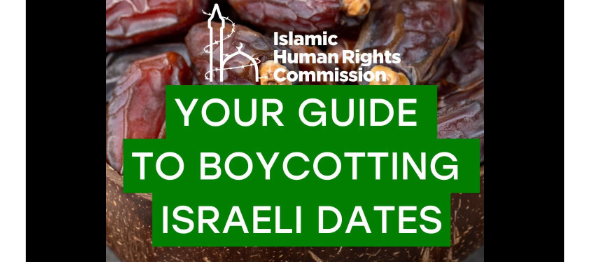To: His Excellency Mr António Guterres, Secretary-General of the United Nations Subject: An Appeal for the Dismantling of Apartheid and the End of Impunity
Excellency,
We write to you at a moment of grave historical reckoning, when silence has become complicity and hesitation a betrayal of the very Charter upon which the United Nations was founded. The unprecedented atrocities committed against the Palestinian people in June and July 2025— have exposed with piercing clarity the systemic violence, deception, and dispossession that lie at the core of the Israeli regime. This same regime demonstrated the transnational scope of its aggression when, on June 13, 2025, it carried out an illegal and unprovoked attack on the Islamic Republic of Iran, violating Iran’s territorial independence and sovereignty. What is now occurring is not an aberration but the continuation of a deliberate project of colonial expansion, racial domination, and cultural erasure, underpinned by a foundation of legal impunity and ideological fabrication.
Injustice, as we have learned from history, is often camouflaged by the manipulation of memory and the inversion of moral causality. The Zionist regime, which cloaks itself in the victimhood of past suffering, has forged a doctrine of domination under the guise of national self-defence. But the world no longer accepts euphemisms for apartheid. The Israeli regime no longer possesses the ability to withstand the unyielding roar of universal justice. The time has come to openly confront the myths upon which this regime was established and sustained.
Excellency,
At the outset, colonialism has always sought to exonerate itself from accusations of genocide, war crimes, violations of national sovereignty, and interference in the affairs of nations by invoking the myth of ‘that was then.’ It is a ruse designed to consign grave injustices to the realm of distant history, thereby evading present responsibility.
Yet, the Zionist regime’s record is not confined to a bygone era. From the massacre at Deir Yassin in 1948, through the horrors of Sabra and Shatila in 1982, the brutal incursions into Jenin in 2002, to the relentless bombardments of Gaza between 2008 and 2021, and most recently, the devastation wrought since October 7, 2023, these acts form an unbroken chain of calculated oppression. To relegate these crimes to the past is to deny the living reality of Palestinian suffering and to dismiss the urgent imperative of justice and redress.
As of July 2025, the Israeli regime has committed one of the most extensive massacres in modern history. Over 60,000 Palestinians, including more than 17,000 children, have been killed in Gaza, with more than 100,000 injured, according to international humanitarian sources including UNRWA, the UNESCO, the WHO, and Doctors Without Borders. More than two million people—over 85% of Gaza’s population—have been displaced, often multiple times, amidst the targeted destruction of hospitals, schools, places of worship, and UN shelters. These are the deliberate outcome of an assault aimed at collective erasure, now widely recognized by legal experts and UN officials as genocide. In this war, the very notion of civilian immunity has been obliterated, and the children of Gaza have paid the heaviest price.
In the second breath, the so-called “birth” of the Israeli regime rests on a grand deception—a calculated colonial imposition that distorts a shared human heritage. It was not founded through justice or law, but through land seizure and the violent dislocation of an indigenous people. The 1947 UN Partition Plan, often cited as its legal origin, was rejected by the very regime it sought to authorize, exposing an insatiable appetite for expansion beyond even the limited allotments proposed. Waves of settler immigration followed, enforced by land confiscations and the expulsion of Palestinians.
The Nakba of 1948 remains a historical wound—over 500 villages destroyed, more than 700,000 Palestinians exiled, their identity erased and rendered stateless. This was not a birth, but a deliberate erasure—an apartheid of memory and being, sustained by ongoing injustice. No rhetoric of birthright can conceal the colonial violence at its core or nullify the enduring rights of the dispossessed.
The Israeli regime’s illegal attack on Iran during the Twelve-Day War on June 13, 2025 is directly tied to this foundational lie. Iran has stood among the few unwavering voices refusing to recognize this imposed entity, exposing its colonial essence. The aggression was not about Iran’s supposed threats, but about punishing its refusal to submit. In the eyes of the occupier, Iran’s true “crime” is its independence, its principled resistance, and its unbending sovereignty. It is this civilizational dignity— centuries deep—that the Israeli regime and its backers cannot tolerate.
In the third light, the Israeli regime’s persistent invocation of ‘self-defence’ belies a sustained onslaught of aggression and unlawful acts that have destabilised the South West of Asia. Since its inception, the Israeli regime has violated international law, occupying Palestinian lands and expanding settlements in contravention of United Nations resolutions. It maintains a nuclear arsenal, undeclared but widely acknowledged, projecting existential threats far beyond defensive necessity. Central to the Zionist regime’s strategy is a systematic doctrine of assassination, long normalized and institutionalized as a tool of power. The ongoing war has intensified this logic of targeted killing—from the aerial murder of Palestinian commanders in Gaza to the extrajudicial killings of leaders, military commanders, diplomats, scientists, journalists, and activists in Iran, Lebanon, Syria, and beyond. This regime has not only normalized assassination but elevated it into a state philosophy, wherein violence is used to decapitate movements and dismember resistance. The same Israeli intelligence services that armed and trained ISIS in its heyday now pursue a reign of global terror in the name of “security.” This culture of assassination must be recognized and condemned as a primary engine of instability across West Asia and the broader Global South. It is the inverse of civilization—a blueprint for chaos masked in the rhetoric of counterterrorism.
These calculated provocations serve to foment perpetual conflict. The Israeli regime’s atrocities, amplified by unwavering support from Western powers, particularly the United States, function to divert scrutiny from internal discontent and mounting global condemnation. Thus, the self- defence narrative is revealed as an artifice concealing relentless occupation, militarism, and regional destabilisation.
In the fourth reckoning, the Israeli regime’s most pernicious instrument is its insidious weapon of deceit. To veil its manifold transgressions—mass displacement, siege, and the systematic starvation of Gaza—it orchestrates a vast apparatus of disinformation, psychological operations, and character assassination.
It matters not to the Israeli regime who the target is, nor what laurels crown their head, so long as the dignity of their conscience refuses to kneel before the atrocities of an illegitimate state founded upon terror and sustained through the machinery of oppression. At the intellectual and spiritual heart of the resistance stands Ayatollah Seyyed Ali Khamenei, whose lifelong guidance has shaped not only the Islamic Republic of Iran but the broader resistance front across the region. More than a political leader, he is a philosopher of liberation, whose diagnosis of Zionism as a colonial and racist project has proven prescient and consistent over decades. His unwavering distinction place him in a unique position among world leaders. Ayatollah Khamenei’s leadership has remained uncompromising, strategic, and spiritually grounded— making him one of the most authoritative anti-Zionist thinkers of our time. This machinery relentlessly brands legitimate resistance as ‘terrorism,’ thereby inverting the moral order and obscuring the regime’s own perpetration of state terrorism and crimes against humanity. Journalists face censorship; media are infiltrated and manipulated; dissent is silenced. Truth, in this context, is deemed an existential threat to Zionism’s constructed narrative.
This calculated distortion serves a dual purpose: to fracture international solidarity and to justify collective punishment as necessary security. In the face of such artifice, history demands a discerning witness—one who recognises that behind the facade of security lies a reign of erasure, injustice, and unrelenting violence.
In the fifth fold, to reduce global resistance to a mere projection of special policy is to distort both history and humanity. Since the beginning of the illegal occupation of Palestinian lands—and precisely because of it—an unbroken, 80-year-old popular resistance has risen from the heart of the Palestinian people. Generation after generation has stood against dispossession, occupation, and exile, forging one of the most enduring liberation movements of modern history. Their struggle has awakened consciences around the world, igniting solidarity that transcends borders and affirms universal principles of justice and dignity.
This resistance is neither foreign-fuelled nor ideologically manufactured; it is a cry born of the land itself—a just and enduring claim to freedom. As affirmed by UN General Assembly Resolution 37/43, the right of all peoples under colonial domination to resist by any means necessary is enshrined in international law. Global solidarity with Palestine is deeply moral— rooted in the ethical imperative to oppose tyranny and the human obligation to stand with the oppressed. From Indonesia to Algeria, from churches to mosques, the conscience of the world rejects the lie that the victim must apologise for defiance. Free nations and principled governments continue to withhold recognition from the Zionist apartheid regime. The response to Gaza’s suffering now transcends moral sympathy—it is a just, humanitarian, and divine uprising. From believers of all faiths to secular humanitarians, the Palestinian cause unites a global struggle for dignity and truth. This is no longer merely a moral stance; it is a sacred obligation to protect the oppressed and reject genocide, occupation, and cognitive colonization.
Figures like Imam Khomeini, who declared Quds Day a symbol of global awakening; Ayatollah Khamenei, with his unwavering leadership of the resistance axis; and Sheikh Ibrahim Zakzaky, the voice of Islamic awakening in Africa, represent not regional but the spiritual and strategic vanguard of a global struggle whose true horizon is justice.
In the sixth turn, the Zionist project now stands encircled by law, by memory, and by the mounting reckoning of moral history. Since October 7, 2023 and, with greater clarity, following the atrocities of June 2025, the Israeli regime finds itself no longer merely criticised, but arraigned.
At the International Court of Justice, credible allegations of genocide and apartheid have gained institutional gravity. At the International Criminal Court, indictments loom. Across continents, university students, civil society actors, and conscientious citizens have ignited a principled revolt against the architecture of occupation. This is the irreversible delegitimization of a colonial project that can no longer mask its moral insolvency. The truth, carried by witness and word, now erodes the last pretence of impunity.
Finally, and crucially, the illusion of finality that history has spoken, that facts on the ground are immutable, and that the Palestinian cause belongs to a bygone era is among the most insidious myths cultivated by the Zionist regime. It is memory that is targeted, culture that is disfigured, and a people’s very right to narrate their own existence that is denied.
Yet, the struggle endures. It is the assertion of a people’s unextinguished right to justice. Only a democratic referendum—inclusive of all indigenous inhabitants, be they Muslim, Christian, or Jew, and excluding those settled by colonial force—can yield just peace. Until such a moment dawns, history shall remain unfinished, and resistance shall remain righteous.
Therefore, Excellency,
Based on the seven myths presented above, we assert unequivocally that the Israeli regime is inherently exploitative, defiant oppressive, war-mongering, and unjust. It is a system that has developed and expanded on the basis of institutionalised discrimination, colonial seizure, and racial supremacy. Zionist ideology and patterns of governance are not reformable. It must be fundamentally changed and eliminated as a political and legal entity in international affairs.
This is a call for liberation. Liberation from apartheid. Liberation from impunity. Liberation from a structure that for more than 80 years has perpetuated occupation, dispossession, and mass murder.
Let the nations remember: the arc of history does not bend toward militarism, domination, or the cunning arts of deception, it bends toward justice, toward dignity, and toward the liberation of the oppressed. No arsenal of lies, no machinery of occupation, and no doctrine of impunity can withstand the long moral reckoning that history demands. The cries of Gaza, the resolve of the dispossessed, and the conscience of the world shall converge; and it is not power, but truth, not force, but freedom, that has the final word.
We implore the United Nations, under your leadership, to take urgent and unequivocal action— in response to the atrocities committed in June and July 2025, and more importantly, as a historical reckoning for the accumulated crimes committed over more than a century against the Palestinian people.
With the deepest sense of urgency and the highest regard,
Now is the moment to contain it—decisively, lawfully, and without delay. We urge Your Excellency to act.
Respectfully submitted,
7 August 2025
Signatories:
1. Sheikh Ibraheem Zakzaky (Nigeria)
Founder and Leader of the Islamic Movement in Nigeria
2. Pr. Saied Reza Ameli (Islamic Republic of Iran)
Professor of Communication at the faculty of Social Science at the University of Tehran, Head of the UNESCO Chair on Cyberspace and Culture, Founder and Dean of the Faculty of World Studies, Editor-in-chief of Journal of Cyberspace Studies, Senior Researcher in AI
3. Pr. Richard Falk (USA)
Professor Emeritus of International Law at Princeton University and former UN Special Rapporteur on human rights in the Occupied Palestinian Territories (2008 – 2014) author/coauthor/editor/coeditor of 20 books
4. George Galloway (UK)
Former member of Parliament for 26 years, Leader of the Workers Party of Britain, former Leader of the Respect Party, former member of the Labour Party, Co-founder of No2NATO and broadcaster
5. Christopher Williamson (UK)
Former Shadow Minister for Communities and Local Government (2010 to 2013), Former member of Parliament for 7 years, former leader of Derby City Council
6. Massoud Shadjareh (UK)
Chair of Islamic Human Rights Commission-London, holding consultative status at the UN Department of Economic and Social Affairs
7. Cindy Sheehan (USA)
“Peace Mom”, Antiwar Activist and author, 2012 vice-presidential nominee of the Peace and Freedom Party
8. Prof. Radha Kumar (India)
Former Chair of United Nations University Council, Former member of the Board of the UN Institute for Training and Research (UNITAR) and the Foundation for Communal Harmony (Indian Ministry of Home Affairs), Former Director General of the Delhi Policy Group, Specialist in ethnic conflicts and peacebuilding from a feminist perspective
9. Datuk Raja Kamarul Bahrin (Malaysia)
Former Deputy Minister of Housing and Local Government
10. Pr. Hamid Algar (USA)
Professor Emeritus of Persian studies at the University of California, Berkeley
11. Pr. Seyed Mohammad Marandi (Islamic Republic of Iran)
Professor of English Literature and Orientalism at the University of Tehran
12. Saeed Naqvi (India)
Veteran Columnist who has written several publications for BBC News, The Sunday Observer, The Sunday Times, The Guardian, Washington Post, The Indian Express etc.
13. Imam Suhaib Webb (USA)
Former imam of the Islamic Society of Boston Cultural Center, Former Resident Scholar of the Islamic Center of New York University, founder of Ella Collins Institute
14. Dr. Vijay Prashad (USA)
Director of Tricontinental: Institute for Social Research, editor of LeftWord Books, Chief Correspondent at Globetrotter, and senior fellow at Renmin University of China, advisory board member of the US Campaign for the Academic and Cultural Boycott of Israel, co-founder of the Forum of Indian Leftists
15. Saeed Mirza (India)
Renowned Scriptwriter, Director of 18 movies, winner of 6 movie awards
16. Dr. Ajamu Baraka (USA)
2016 Green Party nominee for Vice President, Director of Black Alliance for Peace
17. Col. Alain Corvez (France)
Ex-advisor to Minister of Defence, former advisor to the General Commanding the UN Force in South Lebanon
18. Dr. Daud Abdullah (UK)
Director of Middle East Monitor and former Deputy Secretary General of the Muslim Council of Britain
19. Tommy Sheridan (Scotland)
Former Member of the Parliament, Former Convenor of Solidarity, Former Convenor of Scottish Socialist Party, Former Glasgow City Councillor
20. Ahmad Kazmi (India)
Founder Editor of Media Star World, Founder of Youtube Channel “Media Star World” 934k
21. Ahmet Faruk Ünsal (Türkiye)
Former member of the parliament and ex-chairman of MAZLUMDER 1(2009 – 2016), co-founding member of the Democracy and Progress Party
22. Mardani Ali Sera (Indonesia)
Member of the House of Representatives, Academician, Head of Inter-Parliamentary Cooperation at House of Representatives
23. Pr. Jean Bricmont (Belgium)
Theoretical Physicist and Philosopher of Science, Professor at the Catholic University of Louvain
24. Pr. Halford H. Fairchild (USA)
Professor Emeritus of Psychology at Pitzer College and The Claremont Colleges
25. Pr. Joel Andreas (USA)
Sociologist and professor at John Hopkins University
26. Dr. Michael Springmann (USA)
Former Diplomat in Germany and KSA, Attorney and Counsellor at Law
27. Art Olivier (USA)
2000 Libertarian Party nominee for Vice President, former Mayor of Bellflower, California, Libertarian Candidate for California Governor in 2006
28. Mahfuz Omar (Malaysia)
Vice President of the National Trust Party, Deputy Minister of Human Resources, Chairman of the Farmers’ Organisation Authority
29. Tommy Sands (UK)
Northern Irish folk Singer, Songwriter, and Radio Broadcaster
30. Alberto Bradanini (Italy)
Former director of UN Interregional Crime and Justice Research Institute and UN Research Institute on Crime and Drugs, former ambassador in Tehran and Beijing, president of the Centre for Contemporary China Studies in Italy
31. Iurie Roșca (Moldova)
Former Deputy Prime Minister and former member of parliament for almost 2 decades
32. Sara Flounders (USA)
Co-director of the International Action Center and Secretariat Member of the Workers World Party
33. Pr. Mazin B. Qumsiyeh (Palestine)
Biologist and Director of the Palestine Museum of Natural History and the Palestine Institute for Biodiversity and Sustainability at Bethlehem University
34. Pr. Abbas Edalat (UK-IRAN)
Professor of Computer Science and Mathematics at Imperial College London and founder of the Science and Arts Foundation (SAF) and Campaign against Sanctions, Military and Imperial Interventions (CASMII)
35. Pr. Ramón Grosfoguel (USA)
Sociologist and Professor Emeritus at the Department of Ethnic Studies at the University of California, Berkeley
36. Pr. Haim Bresheeth (UK)
Film Studies Scholar, Retired Professorial Research Associate Professor of Film, Media and Cultural Studies, and Visual Culture at the School of Oriental and African Studies (SOAS), the University of East London
37. Pr. David Miller (UK)
Sociologist and former professor at the University of Strathclyde, the University of Bath and the University of Bristol, Co-Director of Spinwatch
38. Pr. Carl Boggs (US)
Social Science and Film Studies professor at the National University (California)
39. Pr. Lawrence Davidson (USA)
Professor Emeritus of Middle East History at West Chester University
40. Pr. Gabriele Dietrich (Germany)
Sociologist, Philosopher and professor at the Tamil Nadu Theological Seminary, affiliated to the nation’s first University, the Senate of Serampore College
41. Pr. Claudio Mutti (Italy)
Former Professor at the University of Bologna, Director of “Eurasia, Rivista di Studi Geopolitici”
42. Pr. Boaventura de Sousa Santos (Portugal)
Professor Emeritus of Sociology at the School of Economics of the University of Coimbra, Distinguished Legal Scholar at the University of Wisconsin-Madison Law School
43. Pr. James H. Fetzer (USA)
McKnight Professor Emeritus of the Philosophy of Science at the University of Minnesota Duluth
44. Pr. Glenn Bowman (UK)
Professor Emeritus of Socio-Historical Anthropology at the University of Kent
45. Cedric Prakash (India)
Catholic priest and a member of the Society of Jesus (Jesuits) of Gujarat, Founder of Jesuit Centre for Human Rights, Justice and Peace, named Chevalier of the Legion of Honor, Winner of various award for humanitarian activities, Visiting Professor
46. Ameer Abbas (Pakistan)
Senior Anchorperson, GTV Islamabad, Facebook 745k, Twitter 275k
47. Pr. Tim Anderson (Australia)
Political Economist, Director of Centre for Counter Hegemonic Studies, Former Senior lecturer at the University of Sydney
48. Dr. Laurie King (USA)
Sociocultural Anthropologist and expert of the Middle Eastern Studies at the Georgetown University, member of the American Anthropological Association and the Middle East Studies Association
49. Pr. Maria Poumier (France)
Former Professor at the University of Paris (Sorbonne), Professor at University of Havana
50. Pr. Denis Rancourt (Canada)
Former Professor of Physics at the University of Ottawa, Co-Director of CORRELATION Research in Public Interest
51. Pr. Achin Vanaik (India)
Former Professor at the University of Delhi and Fellow of the Transnational Institute (Amsterdam), author of numerous books and social activist
52. Pr. Rodney Shakespeare (UK)
Economist and Visiting professor at Trisakti University, Expert on Binary Economics
53. Dr. Jennifer Loewenstein (USA)
Retired professor and ex-Associate Director of Middle East Studies at the University of Wisconsin-Madison, author at The Journal of Palestine Studies and CounterPunch
54. Pr. Angelo d’Orsi (Italy)
Historian of Philosophy and Professor of History of Political Doctrines at the University of Turin
55. Dr. Shirin Saeidi (USA)
Associate Professor of Political Science at the University of Arkansas
56. Dr. Zakia Soman (India)
Former Professor of Business Communication at the University of Gujrat, Founder of Bharatiya Muslim Mahila Andolan (BMMA) an NGO working on women’s rights, member of South Asian Alliance for Poverty Eradication (SAAPE)
57. Dr. E. Michael Jones (USA)
Former Professor at Saint Mary’s College (Indiana), founder of Culture Wars Magazine
58. Pr. Aftab Kamal Pasha (India)
Director of Gulf Studies Program Centre for West Asian Studies at the School of International Studies, Jawaharlal Nehru University, Former professor at Aligarh Muslim University, former Research Fellow at Cairo University, Egypt
59. Dr. Kevin J. Barrett (USA)
Arabist-Islamologist Scholar, former Professor at the University of Wisconsin-Madison
60. Dr. Revd. Stephen Sizer (UK)
Former Vicar of Christ Church of Virginia Water in Surrey and director of the Peacemaker Trust
61. Greta Berlin (USA)
Co-founder of the Free Gaza movement
62. Dr. Konrad Rekas (Poland – Scotland)
Lecturer at Nottingham Trent University
63. Dr. Yacob MAHI (Belgium)
Theologian and Islamologist, Professor of Islamic Studies
64. Dr. Lorenzo Maria Pacini (Italy)
Head of the Department of Geopolitics at UniDolomiti of Belluno and professor at Libera Università
65. Merlin Miller (USA)
2012 Presidential Candidate and paleoconservative Independent Film Director, Writer and Producer former Industrial engineering manager for Michelin Tire Company
66. Abdul Ghani Samsudin (Malaysia)
Chairman Secretariate for the Ulama Assembly of Asia
67. Virginia Saldanha (India)
A theologian and journalist, head of the Indian bishops’ Commission for Women. The founder member and secretary of the Indian Women’s Theologians Forum, columnist at to UCA News (The Union of Catholic Asian News is a news agency)
68. Sheikh Ahmad Awang (Malaysia)
Chairman of the Alliance of World Mosque in Defence of Al Aqsa, former President of the Malaysian Ulama Association
69. Dr. Declan Hayes (Ireland)
Retired Professor at the Sophia University of Tokyo
70. Pr. Guillermo Barreto (Venezuela)
Biologist and Retired full professor of the Organisms Biology Department of Simón Bolívar University
71. Soumya Dutta (India)
Assistant Professor in the Department of Computer Science and Engineering (CSE) at the Indian Institute of Technology, key coordinator of MAUSAM (Movement for Advancing Understanding on Sustainability And Mutuality) which is coalition of more than 40 organizations and networks
72. Zita Holbourne (UK)
Co-founder and National Chair of Black Activists Rising Against Cuts (BARAC) and founding member of Movement Against Xenophobia
73. Sandew Hira (Netherlands)
Founder of Decolonial International Network known for his Decolonial Theory, Director of International Institute for Scientific Research
74. Frank Dorrel (USA)
Antiwar Veteran, author of Addicted to War, Why The U.S. Can’t Kick Militaris
75. Dr. Ladislav Zemanek (Czech)
Historian and Research Fellow at the China-CEE Institute, former Politician
76. Medha Patkar (India)
Co-founder of the National Alliance of People’s Movements (NAPM): an alliance of hundreds of progressive people’s organizations, focusing on injustice faced by tribals, dalits, farmers, laborers and women
77. Daniel Estulin (Lithuania)
Writer and thinker whose main interest is the Bilderberg Group
78. Dr. Ellen Cantarow (USA)
Journalist and author at The Nation, Counterpunch, ZNet, TomDispatch and Common Dreams
79. Lauren Booth (UK)
Author, Journalist, Broadcaster, former writer of columns and features at New Statesman (4 years) and The Mail on Sunday
80. Dr. Yvonne Ridley (UK)
Secretary General of European Muslim League, ex-President of the International Muslim Women’s Union
81. Dr. Syed Qandil Abbas (Pakistan)
Associate Professor in the School of Politics and International Relations at Quaid-i-Azam University (QAU) in Islamabad
82. Dr. Munawar Hussain Pahnwar (Pakistan)
Assistant Professor at Area Study Centre for Africa, North and South America, Quaid-i-Azam University (QAU) in Islamabad
83. Dr. Ahdaf Soueif (UK)
Novelist and political and cultural commentator
84. Prashant Bhushan (India)
Public Interest Lawyer in the Supreme Court, member of the faction of the India Against Corruption (IAC) movement known as Team Anna
85. Shabnam Hashmi (India)
Social Activist and Human Rights Campaigner, Amongst 91 Indian women nominated globally for the 2005 Nobel Peace Prize
86. Dr. Mücahit Gültekin (Türkiye)
Psychologist and Assistant Professor at Afyon Kocatepe University
87. Dr. İsmail Duman (Türkiye)
Professor at Sakarya University, Expert in Geopolitics and Islamic Movements
88. Dr. Tatheer Fatima (Pakistan)
Professor at National University of modern language (NUML)
89. Dr. Yasin Kuruçay (Türkiye)
Psychologist, Professor at Bursa Uludağ University
90. Volkan Tekdemir (Türkiye)
Lecturer at Bursa Uludağ University
91. Jean Michel Vernochet (France)
Former Journalist of Le Figaro Magazine, Writer
92. Pepe Escobar (Brazil)
Geopolitical Analyst and Journalist who has written for Asia Times, Mondialisation.ca, CounterPunch, Al-Jazeera, RT, Sputnik, Strategic Culture Foundation and Guancha
93. Javed Anand (India)
Founder of Indian Muslims for Secular Democracy (IMSD), Founder of Sabrang Communications, co-editor of the monthly Communalism Combat
94. Wan Mohamad Sheikh Abdul Aziz (Malaysia)
President of the Ulama Association of Malaysia, former Director-General of the Islamic Development Department of Malaysia
95. Mohd Azmi Abdul Hamid (Malaysia)
President of Malaysia Consultative Council of Islamic Organizations
96. Nasir Abbas Sherazi (Pakistan)
Visiting Lecturer at International Islamic University, President of the Centre for Pakistan and Gulf Studies
97. Peter Koenig (Switzerland)
Economist and Geopolitical Analyst with more than 30 years of experience in the World Bank, the World Health Organization and the Swiss Development Cooperation
98. Sagar Dhara (India)
Founder of South Asian People’s Action on Climate Change (SAPACC), specialising in energy transformations, risk analysis, environmental impacts of industry; Former Environmental Engineering Consultant to the UN Environment Programme
99. Imam Muhammad al-Asi (USA)
Former Imam of the Islamic Center of Washington, Research Fellow at the Institute of Contemporary Islamic Thought
100. Tushar Gandhi (India)
President of Mahatma Gandhi Foundation, Trustee at Maharashtra Gandhi Smarak Nidhi
101. Rabbi Ahron Cohen (UK)
UK Spokesperson of the worldwide religious group Neturei Karta
102. Rabbi Yisroel Dovid Weiss (USA)
Worldwide Spokesperson of the religious group Neturei Karta
103. Rabbi Dovid Feldman (USA)
Member of the worldwide religious group Neturei Karta
104. Christian Bouchet (France)
Anthropologist, Former Politician and Antiwar Activist
105. Zafar Bangash (Canada)
Director Institute of Contemporary Islamic Thought in Toronto
106. Lalita Ramdas (India)
Human Rights and pro-Nuclear Disarmament campaigner, Board Chair of GreenPeace India, Supporter of of Alternative Education, Gender Sensitivity and Secularism
107. Sander Hicks (USA)
Founder of Soft Skull Press, Guitarist and Antiwar Activist, author of The Big Wedding: 9/11, the Whistle Blowers, and the Cover-up
108. Ibrahim Hewitt (UK)
Former Senior Editor at Middle East Monitor; former chairman of the board of trustees of Palestinians Relief & Development Fund (Interpal)
109. Haleh Niazmand (USA)
Professor of Art at Modesto Junior College, Conceptual Artist, Curator, and Art Critic
110. Jürgen Cain Külbel (Germany)
Criminologist, Investigative Journalist, Author of a book on Israel’s role in assassination of Hariri
111. Rev. Father Dave Smith (Australia)
Anglican priest, Social Educator, Boxer, 2022 Candidate in Federal Election from United Australia Party in the Division of Grayndler
112. Gilles Munier (France)
Investigative Journalist and Secretary General of the Franco-Iraqi Friendships Association
113. Dr. Paul Jeffrey Hendler (South Africa)
Active member in the Palestine Solidarity Campaig
114. Ginette Hess Skandrani (France)
Antiwar activist and member of Parti des Verts (French Green party)
115. Eric Walberg (Canada)
Geopolitical Expert and Author
116. Amaresh Misra (India)
Author, Researcher, Scriptwriter, Expert on West Asian Affairs, winner of the Jasarat Award by the Urdu Press Club of India gave in 2007
117. Adrián Salbuchi (Argentina)
Political Analyst, Writer
118. Dr. Abdullah Sudin Ab Rahman (Malaysia)
President of HALUAN (humanitarian relief, education, and community development), former Chief Executive Officer at Darulnaim College of Technology for 12 years
119. Dragana Trifković (Serbia)
Director General of the Center for Geostrategic Studies in Belgrade
120. B. G. Kolse Patil (India)
Social Reformer and Former Judge
121. Hafsa Kara-Mustapha (UK)
Journalist and Author, Expert of North Africa and UK relationship
122. Caleb Maupin (USA)
Founder of Center for Political Innovation, Journalist
123. Margherita Furlan (Italy)
Journalist and director of Casa Del Sole TV
124. M.Hatta Taliwang (Indonesia)
Former MP, Former Chairman of the Muhammadiyah, MP Soekarno Hatta Institute
125. Pawel Wargan (Germany)
Antiwar Activist and writer at Morning Star Online
126. Ali Hassan (UK)
CEO of Muslim Public Affairs Committee in the UK
127. Gearóid O Colmáin (Ireland)
Paris-based Geopolitical Analyst and Author
128. Niranjan Takle (India)
Electronics Engineer by training and a journalist by choice, Youtube channel 222k
129. Delia Mattis (UK)
Spokesperson of the UK branch of Black Lives Matter Coalition
130. Jacob Cohen (France)
Academic, Novelist and Antiwar Activist
131. Revd. Frank Gelli (UK)
Founder of Christians Against Crusaders Network and Retired Anglican Priest
132. Barrister Mohideen Abdul Kader (Malaysia)
Lawyer and Director of Citizens International
133. Shyam Dada Gaikwad (India)
President of Progressive Republican Party of India (Secular Party)
134. Don DeBar (USA)
Independent Journalist
135. Malaika Mathew Chawla (India)
Ecologist and Member of National Alliance for Climate and Ecological Justice (NACEJ)
136. Gordon Duff (USA)
Vietnam War Veteran and Antiwar Activist
137. Rajesh Ramakrishnan (India)
Managing Director at Perfetti Van Melle India with over 25 years of experience in General Management, Sales and Marketing, member of the Indian Community Activists Network (ICAN)
138. Jamaladdin Shamsuddin (Malaysia)
CEO of the Allied Coordinating Committee of Islamic Associations
139. Dr. Michael Spath (USA)
Executive Director of Indiana Center for Middle East Peace
140. Sylvia Finzi (UK)
Painter, Sculptor and Printmaker, former Visiting Artist at the Heatherley School of Art and former Visiting Artist at Westfield College, London University
141. Meera Sanghamitra (India)
Representative of All India Feminist Alliance (ALIFA) and member of the National Alliance of People’s Movements (NAPM)
142. Giorgio Ramadhan (Indonesia)
Founder of Indonesia Palestine Alliance (IDPAL)
143. Kerem Ali (UK)
Spokesperson of Palestine Pulse
144. Mustafa Kurdas (Türkiye)
Advisor of President of Saadat Party and Political Analyst of TV5
145. Imad Hamrouni (France)
Professor at Académie Géopolitique de Paris
146. Binu Mathew (India)
Founder and Editor of Countercurrents.org
147. Mazhar Barlas (Pakistan)
Senior Anchorperson, Columnist at Daily Jang
148. Ali raza alvi (Pakistan)
Central leader of Pakistan federal union of journalists (PFUJ): largest journalists alliance
149. Azhar Jatoi (Pakistan)
President of the National Press Club (NPC)
150. Ahmad Fahmi Shamsuddin (Malaysia)
President of the Muslim Youth Movement
151. Dave Cannon (UK)
Chair of Jewish Network for Palestine
152. Dr. Suresh Khairnar (India)
Former President of Rashtriya Sewa Dal & IPSF
153. Nureddin Sirin (Türkiye)
General Director of Quds TV
154. Sajjad Kargili (India)
Representative of Jamiat-ul-Ulama Isna Asharia, a socio-religious institution of Kargil
155. Mateen Haider (Pakistan)
Senior Journalist
156. Mufti Gulzar Ahmed Naeemi (Pakistan)
Senior Religious Leader and Member of Interfaith Harmony at Federal Level
157. Ravi Kanneganti (India)
Founder of Telangana People’s Joint Action Committee (TPJAC)
158. Qamar Agha (India)
Veteran Journalist and Expert on West Asian Affairs
159. Gurbir Singh (India)
Veteran Journalist and Former President of Mumbai Press Club
160. Sanjay MG (India)
National Working Group, member of the National Alliance of People’s Movements (NAPM)
161. Ulka Mahajan (India)
Co-founder of Sarvahara Jan Andolan: mass organization which lies to the south east of Bombay
162. Musa Aydın (Türkiye)
General Director of 14 TV
163. Hakan Ozayaz (Türkiye)
Head of Volunteers of Quds Association
164. Kadlr Akaras (Türkiye)
Head of Ehla Der (Ahlul Bait foundation)
165. Halil Yücel (Türkiye)
Head of EDEB PLATFORMU
166. 4-Emrah Bulut (Türkiye)
Head of KALEMDER
167. Semih Yıldı (Türkiye)
Head of BİLGE-DER
168. Mehmet Demirdağ (Türkiye)
Head of Vel Asr Association
169. Kaneez Hisbani (UK)
Operations Leader for the Ahlulbayt Sisters Association
170. Ir. Mujtahid Hashem (Indonesia)
Director of Voice of Palestine
171. Dr. Moh Maruf (Indonesia)
Director of The Global Thinkers Institute
172. Faizul Hasan (India)
Director of International Democratic Rights Foundation (IDRF)
173. Dr. Wachid Ridwan (Indonesia)
Deputy Chairman of the International Relations and Cooperation, Central Board of Muhammadiyah
174. Dr. G G Parikh (India)
Veteran Freedom Fighter and Chairman Yusuf Meherally Centre
175. Ramchandra Rahi (India)
President of Gandhi Nidhi dedicated to commemorating Mahatma Gandhi and his ideals
176. Prof. Dr. Husni Teja Sukmana (Indonesia)
Vice Chairman of ICMI (The Indonesian Association of Muslim Intellectuals) South Tangerang City
177. Ashiq Hussain Joya (Pakistan)
Senior Research Analyst at Centre for Pakistan and Persian Gulf Studies
178. Manu Kaushik (India)
On behalf of IRMAns for India (75 alumni of the Institute of Rural Management Anand)
179. Dr. Ammar Fauzi H (Indonesia)
Director of Islamic Science Academy
180. Ir. H. Turidi Susanto, ST, M.Tr.IP (Indonesia)
Members of the Regional People’s Representative Council
181. Avinash Patil (India)
President of the Andhashraddha Nirmulan Samiti
182. Mirah Sumirat, SE (Indonesia)
National Trade Union Leader
183. Andi W. Syahputra (Indonesia)
Government Watch/Bara Nasional Indpendent
184. Kalbe Ali (Pakistan)
Senior journalist Dawn news
185. Nadir Baloch (Pakistan)
Social Media Activist and Journalist at Hum TV
186. Serdar Duman (Türkiye)
President of IKRA DER
187. Yakup Tosungoz (Türkiye)
President of BILGEDER
188. Nikita Naidu (India)
Climate, Social and Political Activist and Social Worker
189. Guddi S.L (India)
Managing Editor at Janata Weekly
190. Ashraf Zaidi (India)
Editor of The Leaders Magazine
191. Hananya Sunderraj (India)
Expert in International Law
192. Dr. K. Babu Rao (India)
Activist and Rtd Sr. Scientist IICT
193. Prof. Rakesh Rafique (India)
Mentor, Yuva Watan
194. Arun Srivastava (India)
President of the Samajwadi Samagam
195. Ram Dheeraj (India)
Veteran Sarvodaya Gandhian Peace Activist
196. Prof. Anand Kumar (India)
President of Citizens for Democracy
197. Shashi Shekhar Singh (India)
General Secretary of Citizens for Democracy
198. Deepa (India)
Feminist Practitioner
199. Richard Ray (USA)
Editor and Antiwar Activist
200. Terry Weber (USA)
Jewish Teacher in New York City
201. Luis Alvarez Primo (Argentina)
Antiwar Activist
202. Catherine Lieutenant (Belgium)
Antiwar Activist
203. Anup Kalbalia (India)
Antiwar activist
204. Dr. Kun Nurachadijat (Indonesia)
Researcher
205. Serhat Özdilli (Türkiye)
Lawyer
206. Dr. David Loewenstein (USA)
Professor of English and the Humanities at Penn State-University

